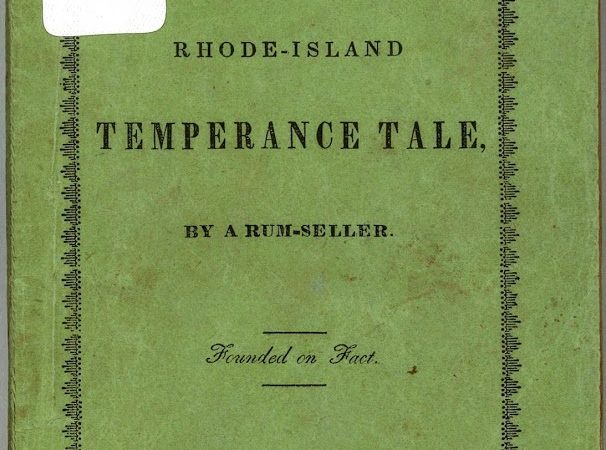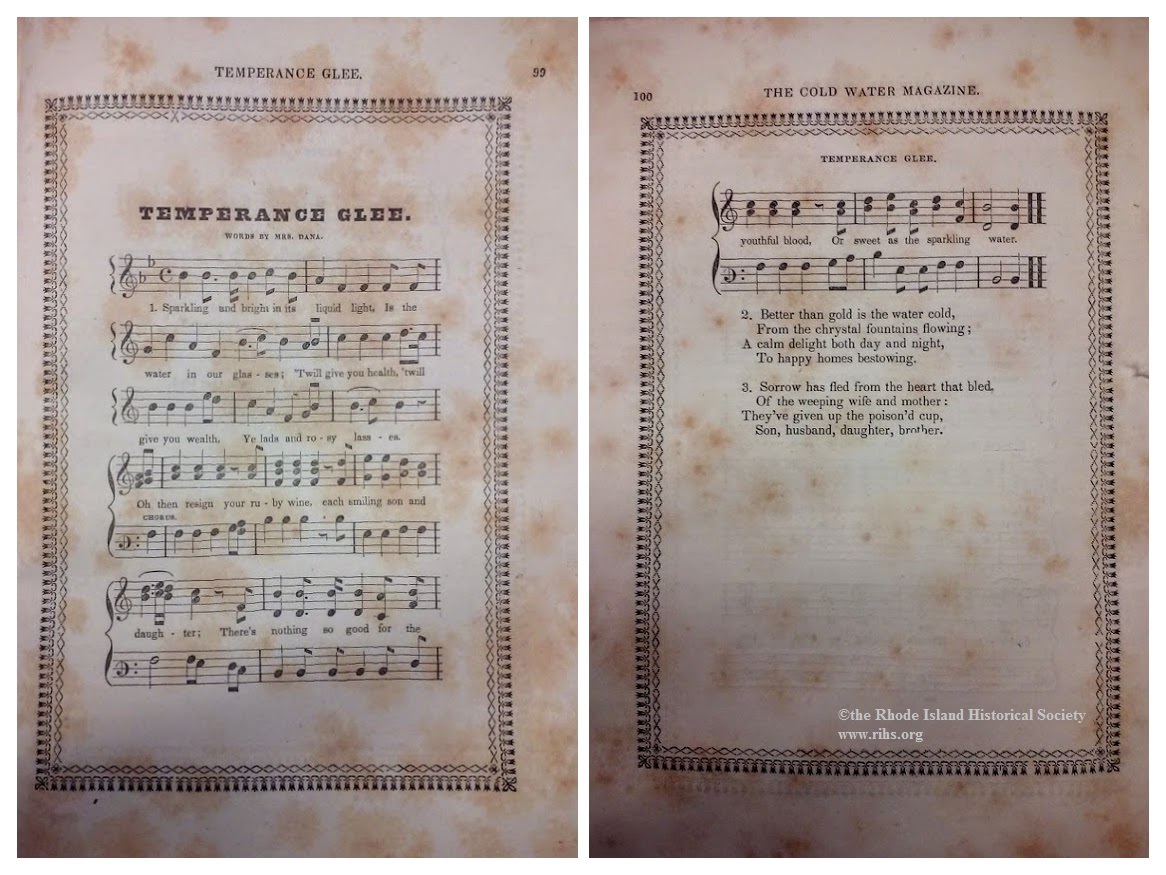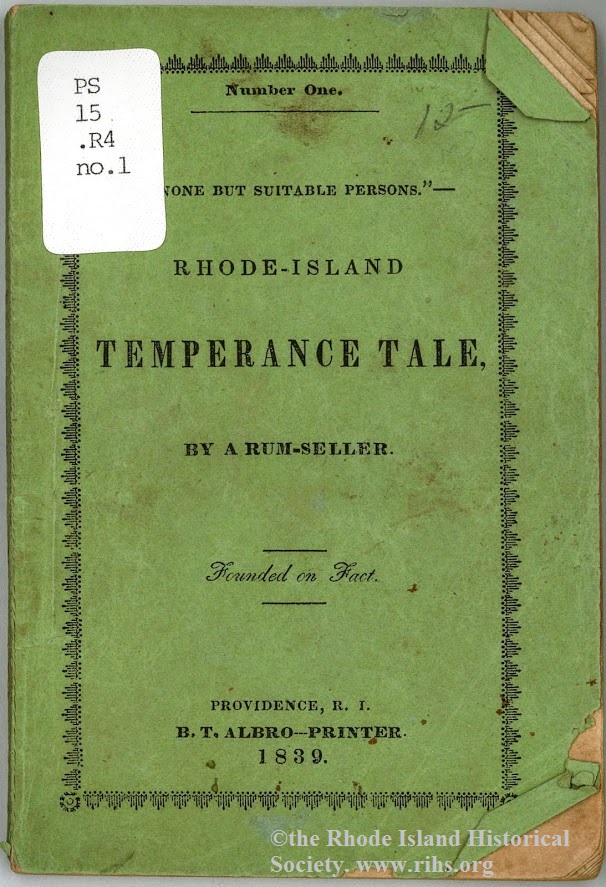
Oh the stories we can tell after a night of fun and celebration! Sometimes those stories turn into warnings for others. History shows us this is nothing new. To counter the excesses of drinking and its social effects, the temperance movement gained many followers and advocates for higher moral standards. During the early 1800s, the movement began to intensify in America, with Rhode Island’s Protestant community behind much of the anti-alcohol propaganda in the state.
Publications promoting the crusade included horrific tales of drunken brawls, abandoned families, and general destitution at the hands of too much drink were distributed by the temperance societies and their supporters. These printed materials helped the cause spread their moral messages far and wide.
The Cold Water Magazine, published in 1842-1843, was a collection of such stories, poems, and songs endorsing temperance. The writings were compiled from all over the country but with the intention that readers could relate no matter where they lived. Here is one such song, found in The Cold Water Magazine, vol. 2, no. 3, March 1843:

Some of the stories were told from the point of view of the alcohol distillers and sellers that had changed their ways. One such story is recounted in “None but Suitable Persons”: Rhode Island Temperance Tale, published in 1839:

I have the honor to be the son of a Grocer, in the City of P*********, R.I. A few years since, having acquired a pretty good common education, I became the first clerk in my father’s store; and now, of late, I am known in law, as a partner in trade with him. Indeed, my father has pretty much relinquished the business of the store into my hands. Of course, I “walk in the footsteps” of the old gentleman… That is to say: as he always sold liquors, so I still continue to sell them; although there is such a fuss made, of late, about the business, by our Temperance Societies, I have been half ready, for some time, to knock off that part of the trade. Indeed, I think I should have done it before this time, had our business been wholly at my disposal. (Page 7)
The tale continues with a detailed account of this man’s interactions with a local rum-seller regarding their part in society’s perceived drinking problems. The story predictably concludes with the grocer’s inevitable decision to discontinue his part in the liquor trade and to convince other sellers to follow suit:
Will not such men lay aside all their views pre-embraced in the dark on the subject, open their eyes, look into this mirror and see how inconsistent it is for them to persist in dealing out intoxicating drinks, which injure all, who use them as a beverage, and ruin thousands? Convinced of the inconsistency; sensible of the impropriety and immorality of such traffic, will they not at once give it up, as hundreds and thousands have already done. (Page 59)
As the introduction in the Temperance Tale explains, these stories did not all originate in Rhode Island, but this set was published in Rhode Island. Others were printed in New York, Boston, and other cities.
In addition to these publications, the Rhode Island Historical Society holds the records of local temperance societies that were in operation throughout the mid-19th and 20th centuries including the Woman’s Christian Temperance Union of Rhode Island (MSS 811) and the Sons of Temperance Records (MSS 729).
Please search our online catalog NETOP for more resources on the temperance movement.
